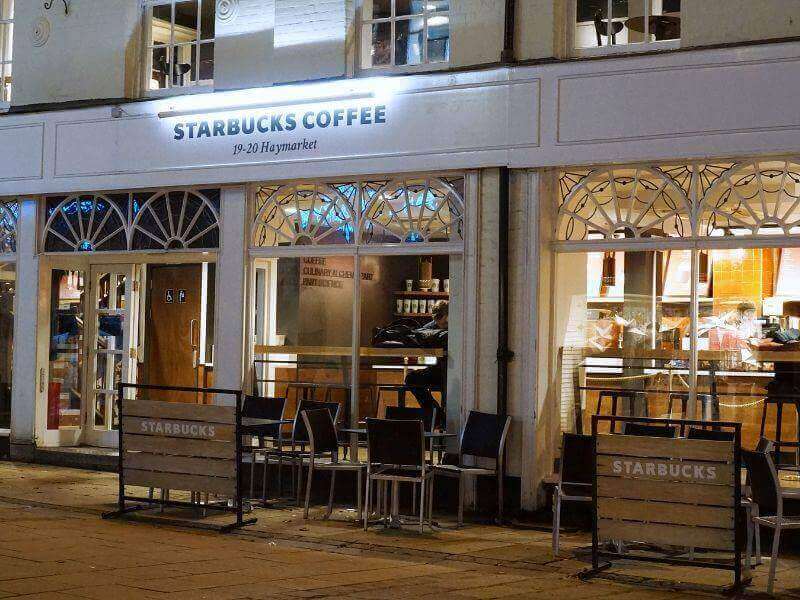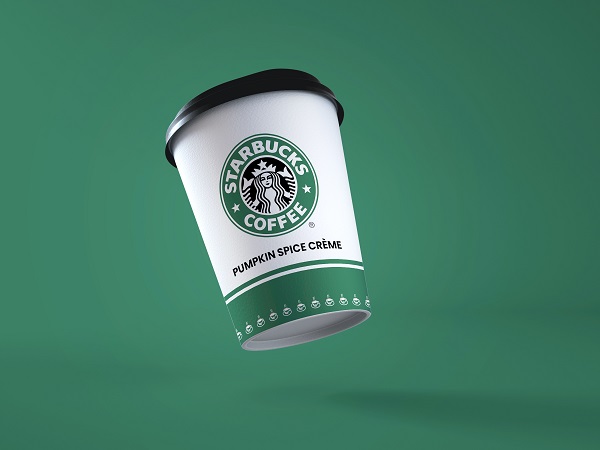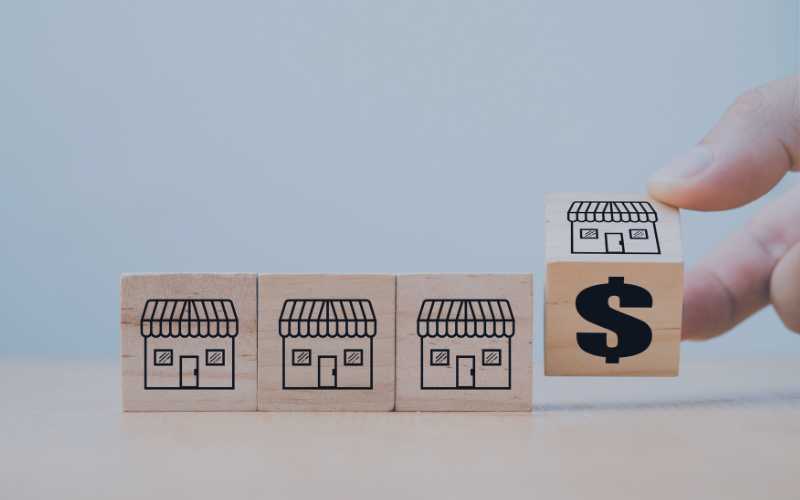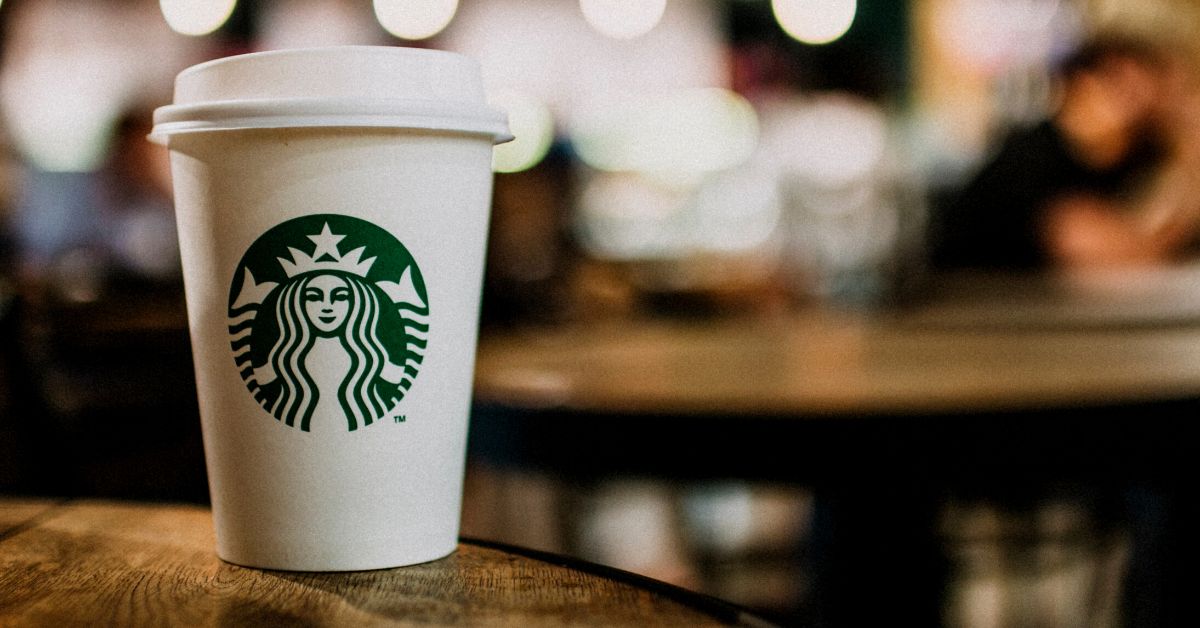Starbucks is a giant in the food and beverage industry with its premium coffee, global brand, and loyal customer base. So it’s no wonder entrepreneurs ask, “Can I franchise Starbucks?”
The answer may surprise you—Starbucks doesn’t offer traditional franchises. Instead, they operate through a licensed store model. This means the company has more control over the brand and operations, and licensees must meet strict requirements and invest heavily upfront.
So, what does it really take to open a Starbucks store? A solid background in the food and beverage industry, along with the ability to manage high-volume locations and meet Starbucks’ high standards. It’s not a typical Starbucks franchise path, but it can be a profitable one for the right partner.
In this guide, we’ll break down the costs and explain the licensed store model. We will also explore alternative coffee franchise options for entrepreneurs who want in, whether with Starbucks or a similar brand.
FAQs
Not in the U.S. or Canada. Starbucks doesn’t offer traditional franchises—they only allow licensed stores. That means you can open a Starbucks, but only through a strict licensing agreement with higher requirements and less operational freedom than a typical franchise.
A franchise gives you a ready-made business to run with more autonomy. Starbucks’ licensing model is different—they keep full control over branding, menu, training, and store standards. You operate the store, but Starbucks calls the major shots to protect brand consistency.
Opening a licensed Starbucks can cost anywhere from $315,000 to $700,000+, depending on location and build-out requirements. You’ll also need strong financial credentials, including about $700K net worth and $250K liquid capital.
Starbucks values consistency above everything. By avoiding traditional franchising, they maintain tight control over quality, customer experience, store design, and product standards. This keeps every store—from Seattle to New York—feeling the same.
If you love the idea of owning a coffee shop, plenty of franchise-friendly brands exist—like Dunkin’, Tim Hortons, Biggby Coffee, PJ’s Coffee, and The Coffee Bean & Tea Leaf. You can also open your own independent coffee shop if you want full creativity and control.
The Global Phenomenon of Starbucks
Started as a single store in Seattle in 1971 has grown into one of the most recognizable names in the coffee shop world. Under the leadership of Howard Schultz, Starbucks transformed into a global powerhouse, with over 30,000 Starbucks locations worldwide.
Today, it’s not just a place to grab a latte but also a lifestyle brand, a meeting spot, and a daily ritual for millions.
From the rich aroma of Starbucks coffee to the signature green siren, every detail delivers quality and consistency. The company has built its reputation on ethically sourced beans, cozy store environments, and exceptional customer care.
Walk into any Starbucks store, and you’ll likely find people working, socializing, or unwinding with their favorite drink. This focus on quality and customer service builds loyalty and enhances the appeal of owning a Starbucks store.
Why Do So Many Dream of It?
The Pull of Brand Power: Riding the Starbucks Halo
The Starbucks name carries serious clout. It’s not just a coffee shop—it’s a global icon that commands recognition on nearly every continent. That green siren logo? It sparks instant familiarity and trust, from Seattle to Singapore.
When you open a Starbucks, you do not have to build brand awareness from the ground up. You’re stepping into a world-class brand that people already know, trust, and love. Customers don’t need convincing—they know exactly what to expect when they walk through the door.
Instant brand recognition like this is rare and extremely valuable. You are likely to see foot traffic from day one. Starbucks has already done the heavy lifting.
That kind of head start for a licensed partner is a serious competitive advantage.
A System That Works: Starbucks’ Proven Model
Starbucks runs like a well-oiled machine, and that’s no accident. Over the decades, the company has fine-tuned every aspect of its operations, from seamless supply chain logistics to consistent barista training and customer service standards.
Even though this isn’t a traditional franchise model, licensees still benefit from the same proven systems and support. You’re not left to figure it out alone. Instead, you inherit a framework built on efficiency, consistency, and scale.
Whether sourcing high-quality beans, implementing standardized workflows, or ensuring smooth tech integration, Starbucks has the playbook ready. This kind of structure minimizes costly trial and error and helps pave the way for more predictable operations and potentially higher profitability.
Built-In Loyalty: Customers Who Keep Coming Back
Starbucks doesn’t just have customers—it has a fan base. For many, grabbing their favorite drink is a non-negotiable part of the daily routine. It’s not just coffee—it’s comfort, consistency, and a personal ritual.
The result of years of delivering positive, reliable experiences and creating emotional connections with millions of customers. Thus, making them difficult to replicate.
As a Starbucks licensee, you inherit this loyalty. You are not just opening a coffee shop but becoming part of your customers’ day. That means predictable foot traffic, regular repeat business, and a strong foundation for long-term success.
Understanding Licensing vs. Traditional Franchising
Starbucks cannot be franchised in a traditional sense, although many aspire to become Starbucks franchisees. They allow entrepreneurs to operate a licensed store under strict brand guidelines that reflect the store’s values.
To understand why, let’s discover the differences between traditional franchising and licensing.
Traditional Franchising
- Business Model: In a franchise setup, you buy a ready-made system that includes a brand name, training, marketing, operations, and everything. In other words, a business in a box.
- Control: The franchisor has primary control over key elements such as store design, menu offerings, and service standards to protect the brand.
- Relationship: Franchisees and franchisors are long-term partners. If one franchise location underperforms, it can tarnish the broader brand.
- Fees: There is a hefty upfront franchise fee, plus monthly royalties and marketing contributions based on gross sales.
- Legal Structure: Regulated under franchise law in the U.S., including a required Franchise Disclosure Document (FDD).
- Examples: Consider retail stores such as The UPS Store, restaurants like McDonald’s and Dunkin', or gyms including Anytime Fitness.
Licensing
- Business Model: A license grants rights to use specific intellectual property, like a brand name or logo. Licensees run their own businesses while integrating that brand into their offering.
- Control: The licensor (like Starbucks) focuses on protecting the brand image and values, rather than overseeing daily operations.
- Relationship: Licensing is more hands-off than franchising. It has less of a partnership and more of a brand-leveraging agreement.
- Fees: Licensees pay fees or royalties, usually tied to the use of the brand rather than a full operational system.
- Legal Structure: Licensing falls under IP and contract law, not franchise regulations.
- Examples: Disney characters on cereal boxes or Calvin Klein-branded perfumes are licensed deals.
Why Starbucks No to Franchising in the U.S. and Canada

Let’s clarify: Starbucks could have chosen the franchise model, but they intentionally did not.
In the U.S. and Canada, Starbucks operates primarily through company-owned stores and carefully selected licensed stores. Why? Because the brand decided early on that full control was worth more than rapid expansion.
Brand Consistency: No Room for Middlemen
Starbucks treats its customer experience like a signature blend—every element matters. From the layout of the store design elements to the way a barista says your name, everything is engineered to reflect Starbucks values.
CEO Howard Schultz famously rejected the idea of traditional franchising, arguing that it would create too many “middlemen” and too much inconsistency.
Whether you visit a retail store in Seattle or a licensed store at an airport in Tokyo, you will have the same curated experience.
Quality Control: Consistency Over Compromise
For Starbucks, consistency is not just an option but essential to the brand. While franchising typically provides operators more flexibility, this flexibility can result in inconsistencies.
Starbucks controls all aspects of its licensed stores, including barista training, bean sourcing, and drink presentation. These ensure that every latte tastes memorable.
Brand Integrity: Built, Protected, and Guarded
Starbucks views its brand like a fortress: protected at all costs. Every element, from signage to store scent, represents its core values.
By using a licensing model, Starbucks gets to vet each partner and enforce clear rules on how to use the brand. No improvising. No diluted messaging. Just one brand, one voice.
This control is part of why Starbucks stock has historically been seen as a strong performer, as it is built on brand trust.
Strategic Store Placement: Beyond the Strip Mall
Starbucks aims not just for visibility but for being present on every corner. It strategically positions licensed stores in high-traffic locations, such as airports, universities, hospitals, and corporate campuses. These unique spaces offer significant foot traffic, allowing licensed stores to flourish with the right operational partner.
Control Over Innovation: Seamless Execution
Rolling out a new seasonal drink? Launching a major app update? Starbucks does not have to herd hundreds of independent franchisees to make it happen. Licensing allows the company to move quickly, ensuring new ideas hit every store at once, whether it is a company-owned store or a licensed partner location.
Financial Power: Starbucks Plays the Long Game
Many brands offer franchising because they need capital, while Starbucks does not. With deep pockets and a clear vision, Starbucks operates from a position of strength.
Licensing enables growth while maximizing profit and protecting the brand. It is not about growing the fastest but about growing the smartest.
How Much Does It Cost to Open a Licensed Starbucks Store?

So, what does it cost to open a Starbucks store through their licensed program and join the numerous Starbucks locations across the U.S.?
The truth is, owning a Starbucks isn’t for the faint of heart – or the light of wallet. While the exact numbers can vary depending on location and other factors, here’s a general breakdown of the costs involved:
Licensing Fee
The licensing fee grants you the right to operate a Starbucks store. This is a one-time payment that allows you to tap into the Starbucks brand and their systems.
Net Worth Requirement
Starbucks typically requires potential licensees to have a minimum net worth of $700,000 and liquid assets of $250,000. This ensures that you have the financial stability to run the store successfully, even during the initial period when the business is just getting started.
Upfront Investment Costs
In addition to the licensing fee, you’ll need to cover upfront costs such as:
Store Build-Out: This includes renovating the space to meet Starbucks’ design and operational standards. From seating areas to lighting and signage, every detail is meticulously controlled by the company.
Equipment Purchase: Espresso machines, grinders, brewing stations, and POS systems – these are just some of the essential equipment needed to run a Starbucks. High-quality, commercial-grade equipment is non-negotiable.
Initial Inventory: Stocking up on coffee beans, syrups, cups, and other supplies is necessary to start operations smoothly.
In total, these initial costs can range from $315,000 to $700,000, depending on the location and size of the store.
Ongoing Costs of Running a Starbucks Licensed Store
Beyond the initial investment, there are ongoing costs that come with operating Starbucks stores under a licensing agreement. These costs must be factored into your long-term financial planning.
Royalty Fees
Like traditional franchises, Starbucks charges a royalty fee, which is typically a percentage of the store’s gross sales. This fee helps cover the ongoing support Starbucks provides to licensees, including marketing, operational assistance, and brand development.
Rent and Operational Expenses
As the operator, you’ll be responsible for paying rent (or mortgage) for the store location. In addition, there are typical operational costs such as employee wages, utilities, and inventory replenishment.
Employee Wages: Starbucks places a high emphasis on training and customer service. Therefore, investing in quality staff is key to maintaining the Starbucks experience.
Inventory: Starbucks has approved vendors for supplies, ensuring consistency across stores. These inventory costs are recurring and essential to keep the business running smoothly.
Hidden Costs and Considerations
Beyond the obvious costs, there are some hidden expenses you’ll need to account for when opening a Starbucks-licensed store.
Permits and Licenses
Obtaining the necessary permits to operate a food and beverage establishment can be both time-consuming and costly. Ensure that your location is in compliance with all local health and safety regulations.
Insurance
Running a coffeehouse comes with risks – from equipment breakdowns to potential customer accidents. Having comprehensive insurance is a must, covering everything from liability to property damage.
Technology Costs
Investing in the latest technology – from point-of-sale systems to digital ordering platforms – is essential to keep up with customer expectations. Starbucks has its own approved tech systems, and these come at a cost.
Can’t Franchise Starbucks? Here’s What to Do Instead.

Let’s face it—becoming a Starbucks franchisee sounds like a dream gig. But if you’ve looked into it, you already know the reality: Starbucks doesn’t franchise in the U.S. or Canada. Their licensed store model is tight on control and heavy on capital, which makes it a no-go for many aspiring coffee moguls.
The good news? The coffee world is rich with opportunity. If you’re ready to brew up your own business, here are some routes worth exploring.
1. Franchising Starbucks Abroad
Yes, it’s technically possible to own a Starbucks… just not here. Internationally, Starbucks partners with experienced operators in select markets. If you’re aiming to franchise Starbucks overseas, be ready for a high bar—think multi-store commitments, deep pockets, and prime real estate.
It’s a bold move with big potential—but it’s not for the faint of wallet. You’ll need serious capital, long-term commitment, and a strong operational track record.
2. Explore Other Coffee Franchises in the U.S.
If you’re looking for a more accessible route, the U.S. is buzzing with franchise options that still pack plenty of perks. Brands like Dunkin’, Tim Hortons, and The Coffee Bean & Tea Leaf offer more flexibility, lower startup costs, and comprehensive franchisee support.
Here’s what to weigh when comparing coffee franchise opportunities:
- Franchise Fee: What’s the upfront investment to get in the game?
- Royalty Structures: Ongoing fees can eat into profits—know what you’re signing up for.
- Location, Location, Location: Coffee thrives on foot traffic. A killer spot can make or break your shop.
- Profit Potential: Dig into the numbers. Brand recognition is great, but profitability is key.
3. Start Your Own Independent Coffee Shop
Got a vision? Ready to get your hands dirty (and maybe a little caffeinated)? Going independent might be your best bet.
From sourcing beans and crafting a signature menu to building a brand that reflects you, starting your own shop gives you complete control. It’s more work up front—no sugarcoating that—but it can be incredibly rewarding and creatively fulfilling.
You’ll also skip franchise fees and corporate restrictions, trading them for full ownership and limitless potential.
Weighing the Costs and Benefits

Owning a licensed Starbucks location in 2026 might still sound like a golden ticket—iconic brand recognition, a built-in customer base, and a franchise system that’s been refined over decades. But here’s the kicker: Starbucks doesn’t operate like a traditional franchise in the U.S. and Canada, and becoming a licensee means playing by strict corporate rules with limited operational control.
Add to that the hefty startup costs and the need for an attractive real estate location, and it’s easy to see why this path isn’t right for every aspiring franchise owner.
There’s also the complexity of dealing with a brand that’s grown through strategic global partnerships and acquisitions—just look at how Starbucks acquired other businesses and brands to expand its reach. It’s a powerhouse, no doubt, but not always accessible to entrepreneurs who want to steer their own ship.
Fortunately, the coffee industry isn’t short on options. Whether you join a fast-growing franchise system with more flexibility or build your own coffeehouse from scratch, success starts with choosing a model that fits your goals, your budget, and your personal leadership style.
Bottom Line: Your Coffee Empire Starts with One Smart Step
You don’t need to wear the green apron to make a name for yourself in coffee. With the right franchise system, strategic planning, and a passion for delivering great customer experiences, you can build a business that’s just as successful—and 100% yours.
So if you’re ready to take the franchise ownership path, now’s the time to explore your options. Work with a franchise consultant to assess opportunities and align your investment with a concept that suits your vision.
Because your future coffee empire isn’t going to brew itself.


